Monday to Saturday - 8:00 -17:30
Free Portable Garage Setup Consultation



What Is a Portable Garage?
A portable garage is a freestanding, weather-resistant structure designed to protect vehicles, boats, or equipment without the commitment of permanent construction. Unlike a standard garage building, it offers flexibility, mobility, and faster setup — ideal for homeowners seeking extra storage space without a major renovation.
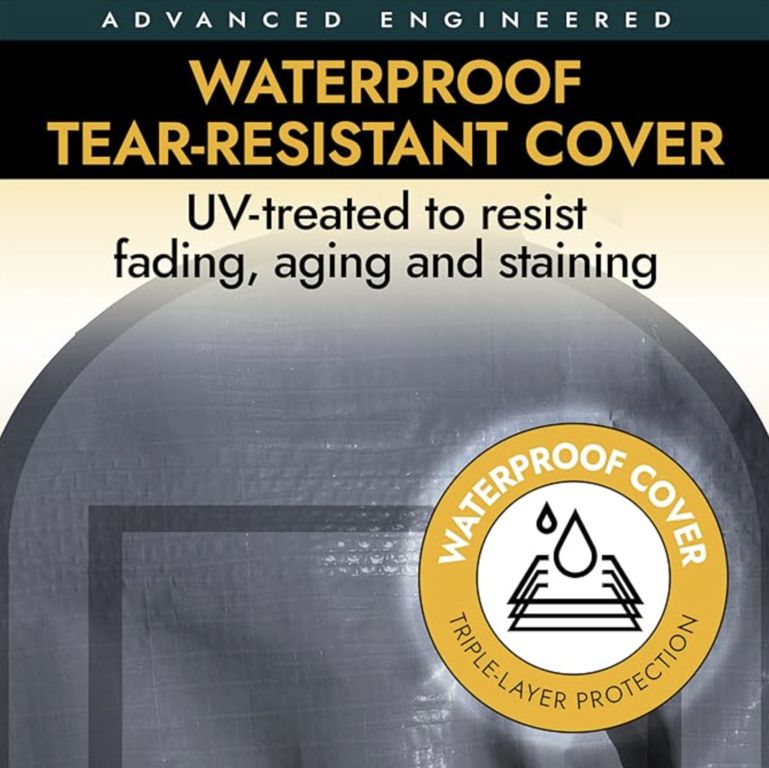
Why Choose a Portable Garage for Versatility
Need to protect your truck in winter and your boat in summer? A portable garage gives you that flexibility. Its mobility means you can relocate it as your storage needs change — from backyard parking to seasonal lawn equipment storage — all without losing durability.
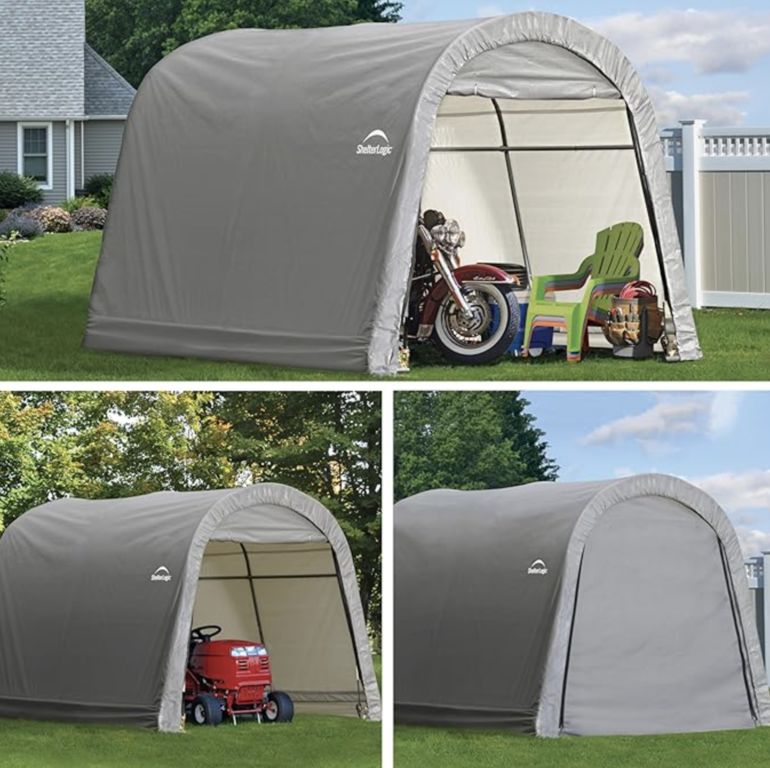
Key Differences From a Traditional Storage Shelter
While a storage shelter is typically more enclosed and static, a portable garage is built for easy access, faster installation, and customizable features. It provides the coverage you need with the ability to withstand weather extremes, minus the commitment of fixed foundations.
Portable vs. Carport, Shed, and Canopy
Choosing between a portable garage, carport, shed, or canopy depends on your storage goals, climate, and budget. Each structure offers its own balance of protection, cost, and long-term flexibility.

When a Carport Offers Better Value
If you’re mainly shielding your car from sun and rain, a carport may offer a more affordable, open-air alternative. It’s quicker to install, often more lightweight, and still provides reliable cover from overhead elements. However, it lacks the full enclosure and durability a portable garage delivers, especially in harsher climates.
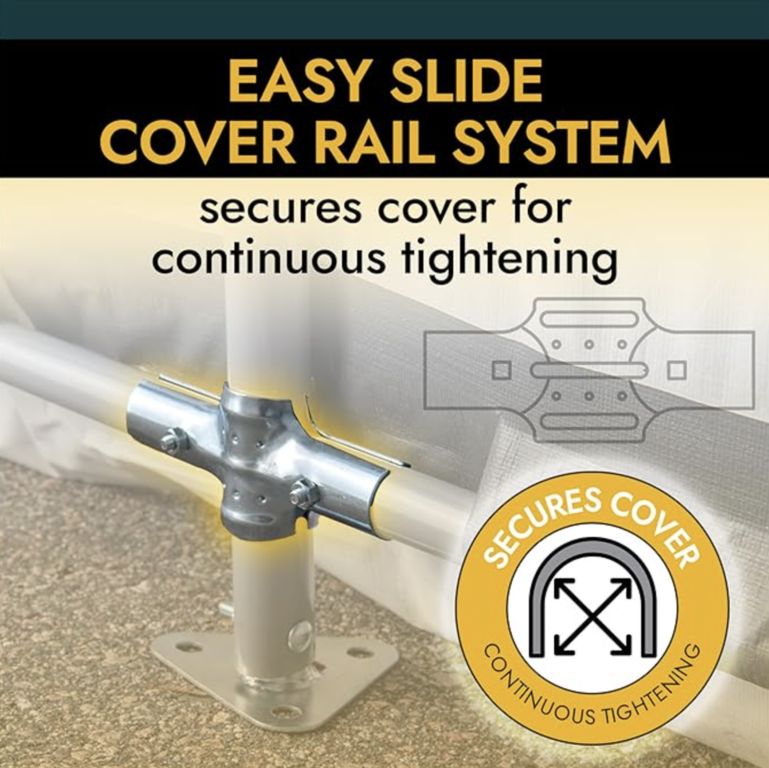
Pros and Cons of Using a Shed for Vehicle Storage
A shed can work well for smaller vehicles like ATVs or a motorcycle, offering enclosed security and extra room for garden tools. But sheds aren’t designed for drive-in access or vehicle storage long-term. They’re more permanent, less flexible, and often require a foundation — unlike the adaptability of portable shelters.
Garage Types: Tent, Shed, and Instant Garage
Portable storage comes in many forms — from rugged garage tents to enclosed sheds and ultra-convenient instant garages. Understanding the differences helps you choose the best fit for your property, budget, and protection needs.
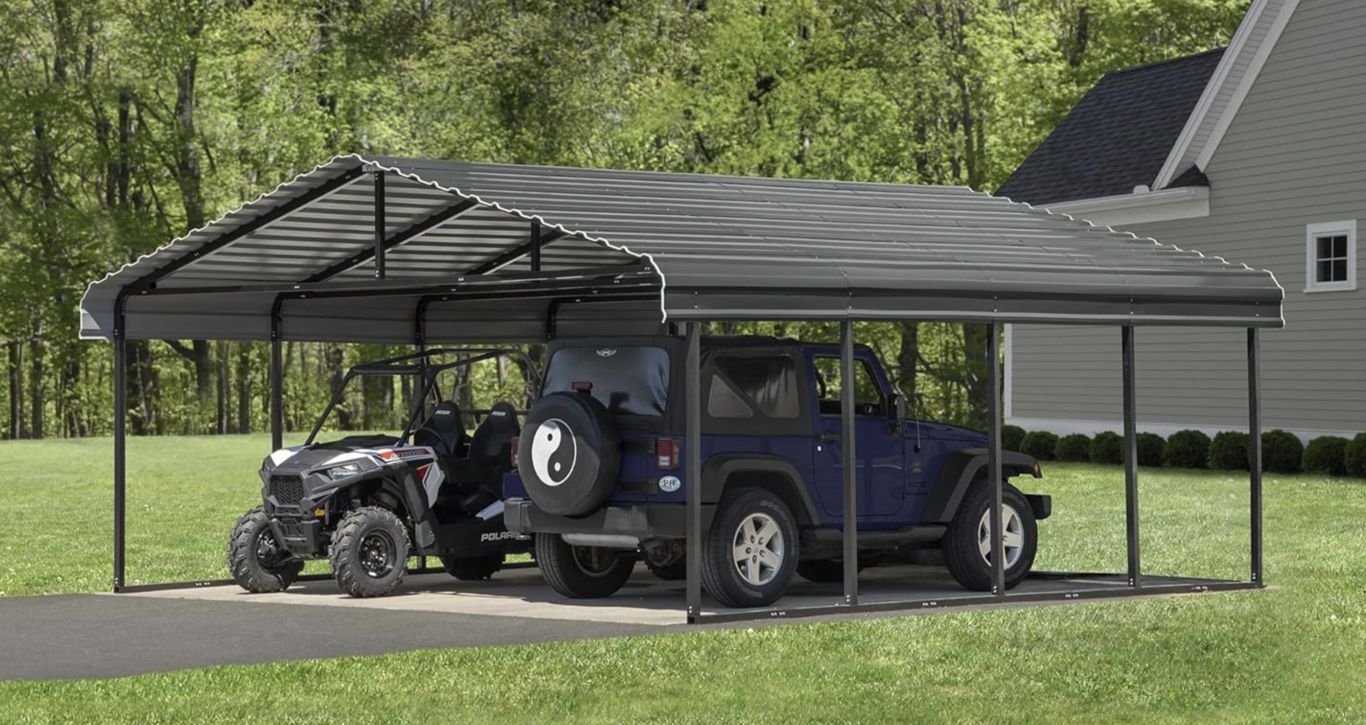
Should You Choose a Portable Garage Shed?
A portable garage shed is ideal when you need enclosed, weather-resistant protection with added storage needs beyond your vehicle. These sturdy structures offer more insulation and security than open options, making them perfect for tools, seasonal gear, or even light woodworking. They’re less mobile than tents but more protective.

The Rise of Instant Garage Solutions
An instant garage offers fast, no-fuss shelter when you need immediate coverage. Perfect for temporary vehicle protection or emergency storage, it sets up quickly and doesn’t require a foundation. Despite its name, quality models with a galvanized steel frame offer long-term durability too.

Comparing a Tent to a Canopy or Carport Canopy
A tent is a lightweight option for quick shade, while a canopy or carport canopy offers broader coverage for your RV or tractor. While they’re easy to assemble, they lack the full enclosure and year-round protection of a portable garage.
Must-Have Standard Features in Any Garage
A high-quality portable garage isn’t just about coverage — it’s about performance, durability, and peace of mind. Whether you’re parking your motorcycle or storing equipment, these essential features make the difference between a short-term fix and a long-term solution.
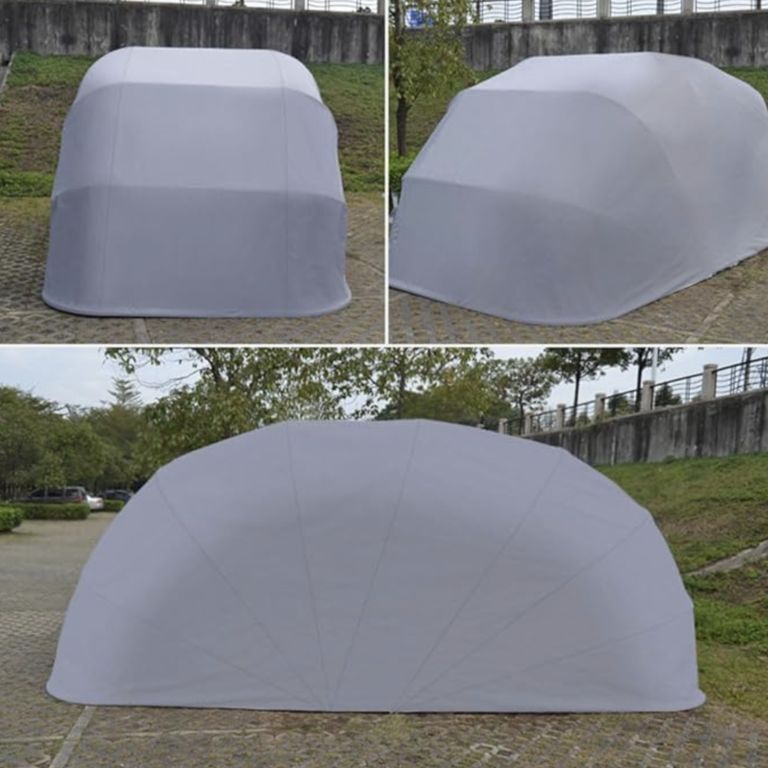
Why a Steel Frame Outperforms Other Materials
When it comes to structural integrity, a steel frame offers unmatched strength. Unlike wood or aluminum, it won’t warp, rot, or buckle under stress. Look for powder coated or galvanize-treated steel to resist rust and extend your garage’s lifespan, especially in wet or coastal environments.
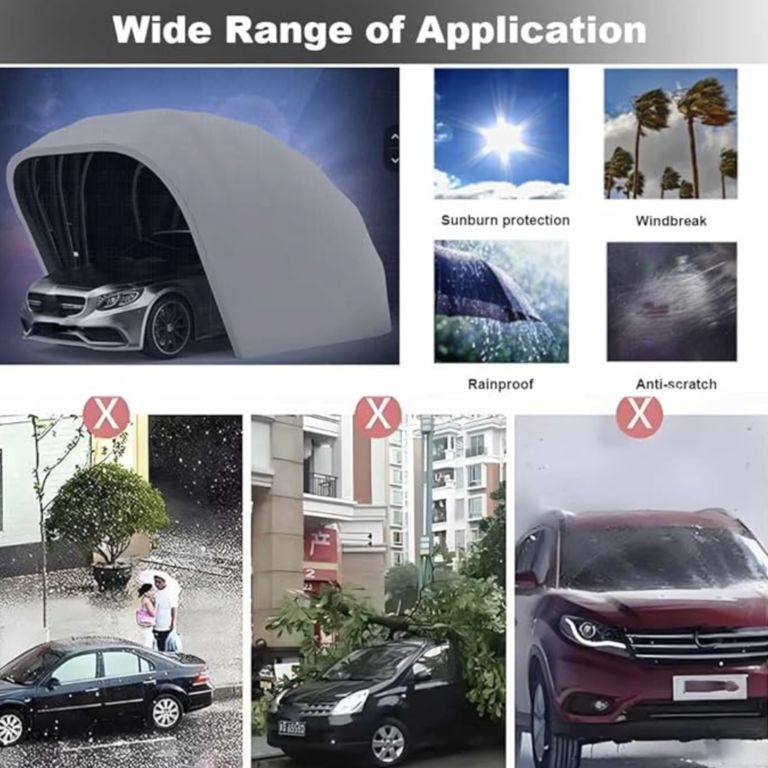
The Benefits of UV Protection and a Style Roof
A style roof isn’t just aesthetic — it improves water runoff and structural stability. Combined with UV-resistant materials, it protects your vehicle and belongings from harmful sun exposure, helping preserve paint, upholstery, and stored items through every season.
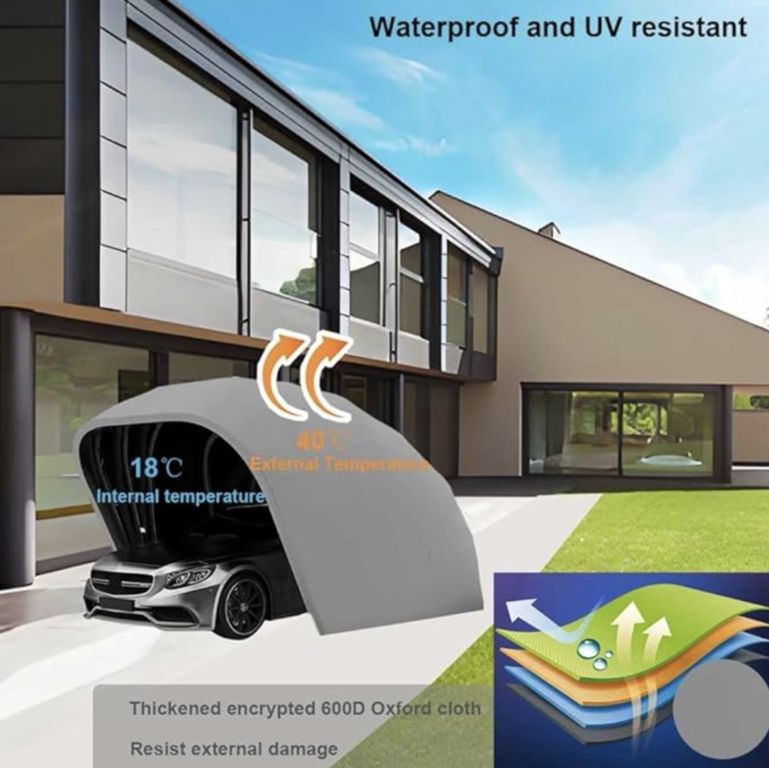
Choosing the Right Floor
Not every garage includes a floor, but it’s crucial for keeping out moisture and dirt. Whether you opt for concrete, gravel, or portable floor joists, the right foundation enhances cleanliness, stability, and your overall experience using the garage.
Common Use Cases by Vehicle and Property Type
A portable garage isn’t one-size-fits-all — its flexibility makes it ideal for a range of vehicles and property types. Whether you’re covering a compact motorcycle or storing an oversized truck, the right setup delivers both protection and extra space to store tools or gear.

Truck and RV Storage
For full-size trucks and RV’s, clearance and durability matter. A heavy duty garage offers the height and interior volume needed for easy access and full coverage. These are especially valuable for seasonal storage or homeowners without a permanent garage solution.

Motorcycle Protection Without a Permanent Structure
Motorcycles require dry, shaded protection year-round, but building a full structure isn’t always practical. A compact, durable portable garage offers a secure alternative to leaving your bike exposed. It’s ideal for patios, driveways, or side yards where a permanent install isn’t possible.
Building Materials, Structure, and Durability
The strength and longevity of a portable garage come down to the materials used and how well they’re suited to your environment. From lightweight frames to heavy-duty structures, the right combination ensures your investment lasts through every season.
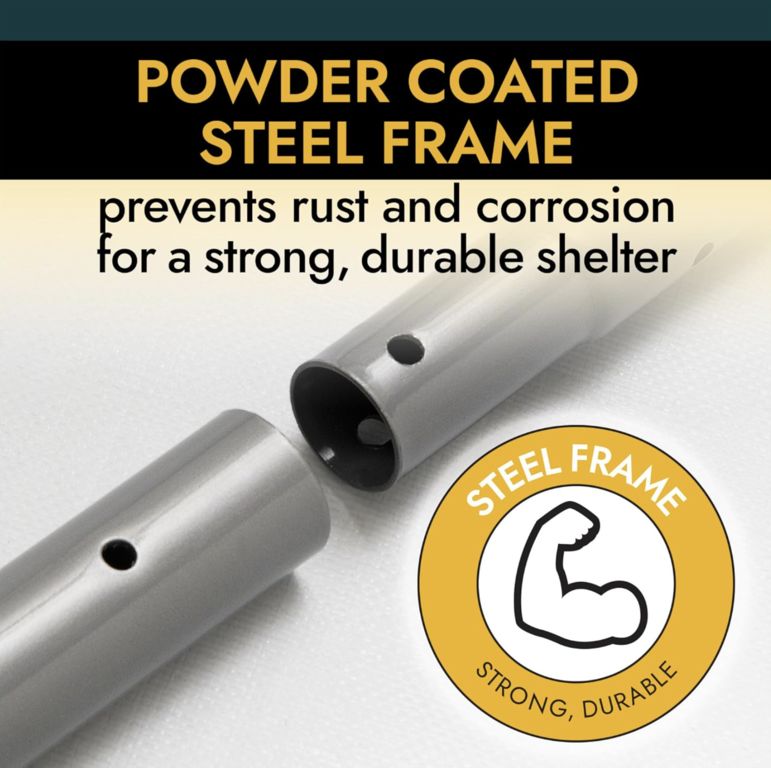
Lightweight vs. Heavy-Duty Garage Options
Lightweight models are easier to move, quicker to set up, and ideal for temporary use. However, for long-term or weather-prone areas, a heavy-duty garage provides better stability and resilience. These are built with thicker materials and reinforced joints to handle wind, snow, and rain.

Selecting a Frame That Suits Your Climate
In colder, wetter, or high-wind regions, durability is key. Opt for a strong frame made of galvanized or powder-coated steel to resist corrosion and damage. In milder climates, a lighter build may be sufficient — saving you on cost without sacrificing reliability.
How to Customize Your Portable Setup
One of the biggest advantages of a portable garage is its flexibility. Whether you’re creating a dedicated workshop or simply need extra storage, customizing your setup ensures it fits your specific needs, property, and daily use.
Floor Plans That Work for a Workshop
If you’re converting your garage into a workshop, your floor plan matters. Choose a layout that allows for tool organization, movement, and workbench placement. Consider insulation or anti-fatigue mats for added comfort during longer projects.
Choosing a Freestanding vs. Anchored Base
Depending on your space and usage, you may prefer a freestanding setup for mobility or an anchored base for stability. Anchoring is ideal in windy areas or when the garage will house heavier equipment.
DIY Upgrades for Better Functionality
Take your space to the next level with smart DIY enhancements. Install shelving, lighting, or even a fold-down table to keep things efficient and clutter-free. Many portable buildings are designed with this level of customization in mind.
Adding Doors and Vents for Easy Access
Enhance usability with roll-up doors, zip panels, or side entry points for easy access. Don’t forget proper ventilation — whether through built-in air vents or window panels — to prevent moisture buildup and maintain airflow.
Setup and Installation Made Simple
Installing a portable garage doesn’t have to be complicated. With the right plan and tools, you can have it up and functional in just hours — not days. Whether you’re housing a vehicle or organizing tools, thoughtful placement and smart choices make all the difference.
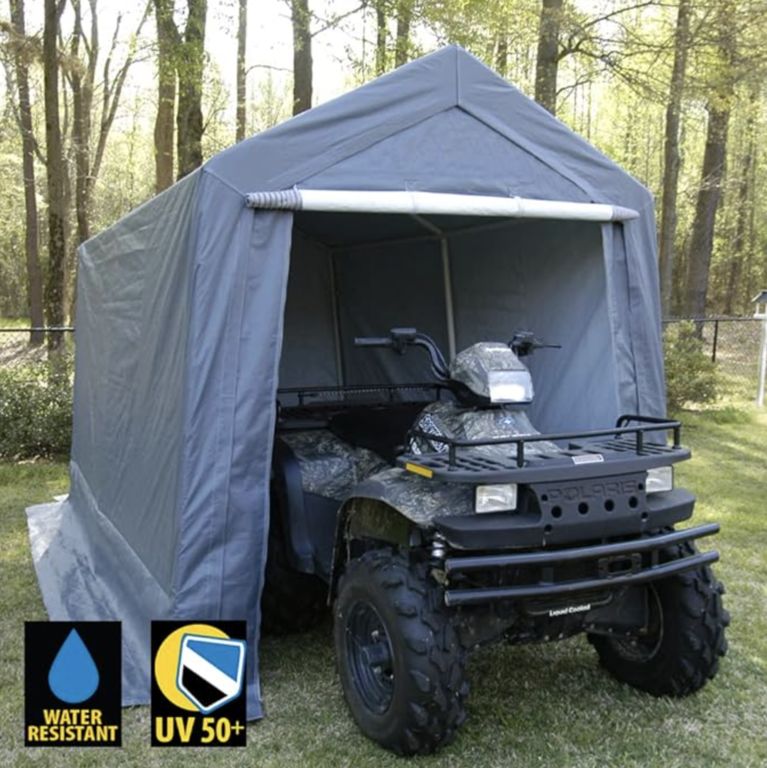
The Benefits of a Prefab Solution
Opting for a prefab setup eliminates guesswork. These pre-engineered kits arrive with pre-cut materials and detailed instructions, making the process faster and more efficient. They’re perfect for homeowners who want a reliable structure without hiring contractors.
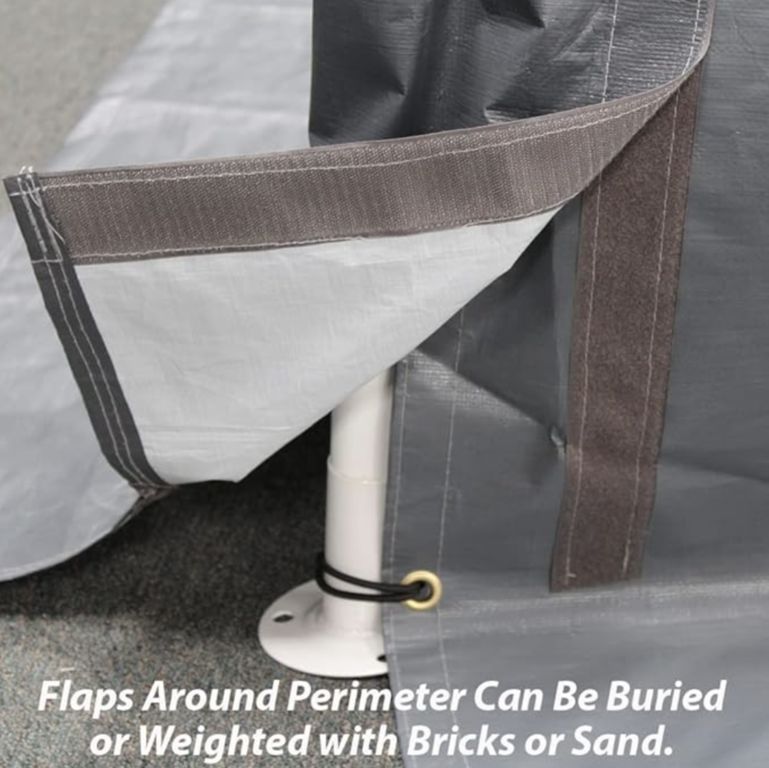
Tips for Placing Near Lawn or Garden Tools
Place your garage strategically to maximize convenience — especially if it’ll double as storage for garden tools or seasonal lawn care gear. Position it close to your backyard access or driveway edge to make daily use easier, and consider ground leveling before installation for added stability.

Long-Term Maintenance and Care
Protecting Portable Sheds Through All Seasons
Keeping your portable sheds in peak condition requires year-round attention. Inspect the structure every season — especially after storms or high winds. Clear leaves and debris from the roof, tighten loose fasteners, and check that anchors remain secure. In winter, brush off snow promptly to avoid excess weight. Summer heat?
Monitor for UV-related wear and make sure the cover stays taut. Regularly clean the exterior with mild soap and water to maintain appearance and strength. With consistent upkeep, your shed stays reliable, protective, and ready for whatever the weather brings.
Expert Recommendations and Brand Picks
Choosing a portable garage isn’t just about size and style — it’s about trusting proven brands and selecting features that match your long-term needs. From structural reliability to user-friendly setup, expert picks focus on durability, ease of use, and real-world performance.
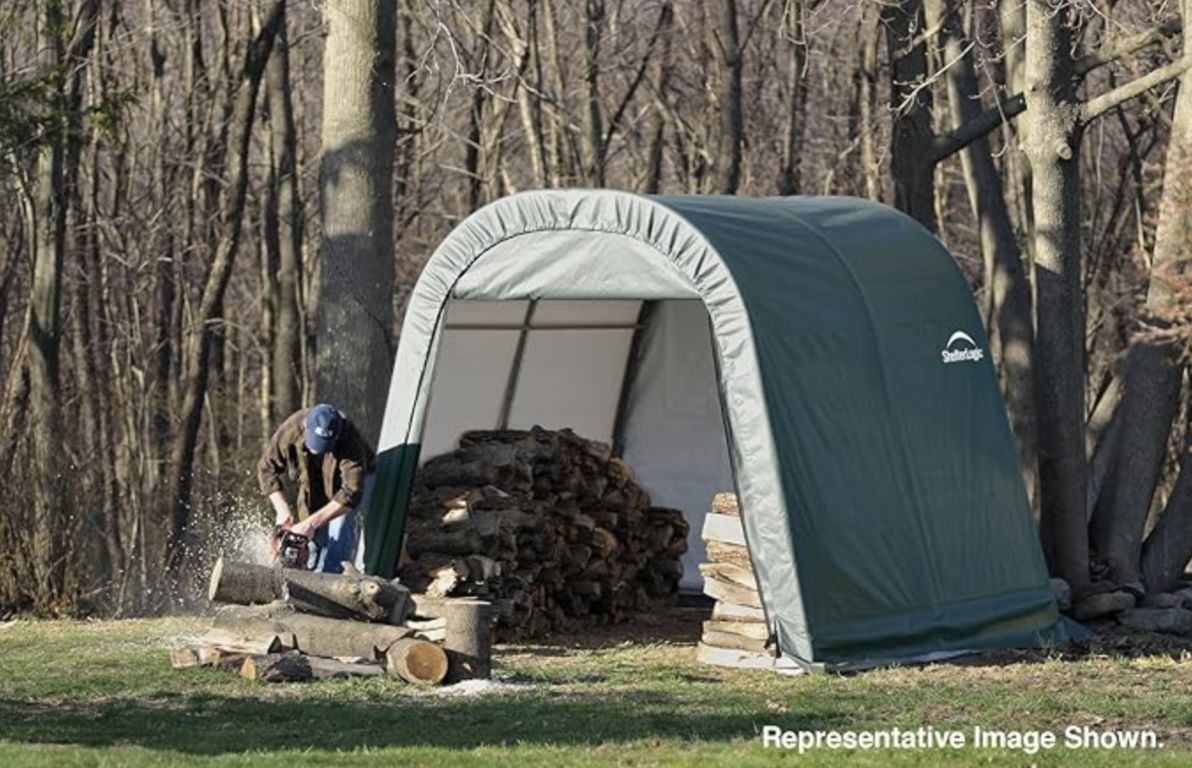
What Sets ShelterLogic Apart
Among top brands, ShelterLogic stands out for offering rugged yet affordable garage options. Known for their garage canopies and storage shelters, they combine quality materials with smart engineering — like UV-treated covers and all-season designs — making them a go-to for homeowners seeking long-lasting value.
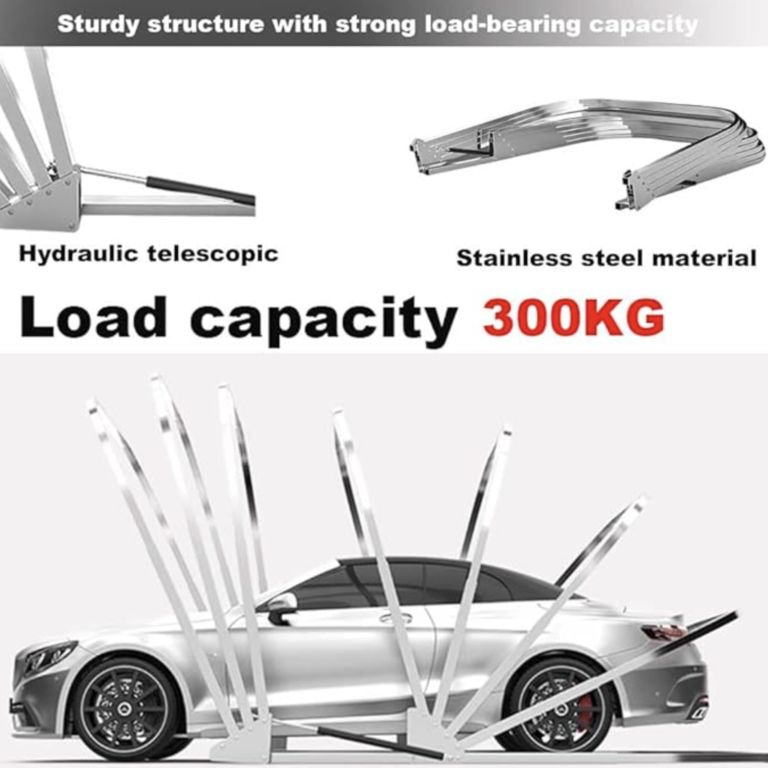
Choosing Between Garage Carport Styles
Whether you’re protecting a vehicle or creating shade, a garage carport offers flexibility. Open-sided models provide ventilation and faster access, while enclosed styles give added weather protection. Choosing the right format depends on whether convenience or coverage is your priority.
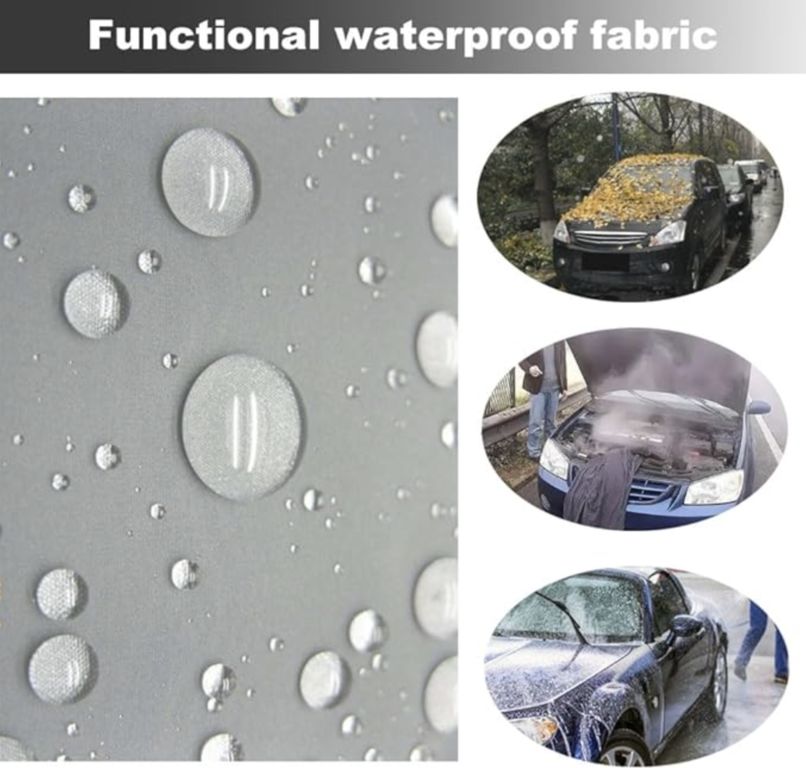
Buying the Right Portable Garage Shelter
When selecting a portable garage shelter, consider your climate, what you’re storing, and how often you’ll need access. Look for customizable sizes, rust-resistant frames, and anchor-ready designs. A well-chosen unit balances function and form — adding dependable shelter without sacrificing curb appeal.
FAQ
If your garage has no windows, you’ll need to vent the portable AC through a wall, ceiling, or garage door using a vent kit. Consider using a ventilation system designed for enclosed spaces to prevent heat buildup and ensure proper airflow.
To vent your unit, install an exhaust duct through a wall panel or modify an unused outlet or dryer vent. If your garage includes a metal portable garage or prefab paneling, cutting a clean vent opening is typically straightforward.
Use your portable AC in conjunction with insulation and proper sealing. This setup works best in storage sheds or garages with controlled airflow and limited direct sunlight exposure.
You can build one using garage kits or portable garage kits that come with all the necessary materials and instructions. Look for kits with rust-resistant frames and custom color options to match your home.
Yes, but efficiency depends on insulation and square footage. For large or open areas like carports, a single unit may not be enough without sealing and airflow control.
Setting up is easier with pop-up frames or portable garages for sale that include step-by-step instructions. For longer-term use, consider anchoring your car canopy securely or upgrading to a more permanent storage unit design.
